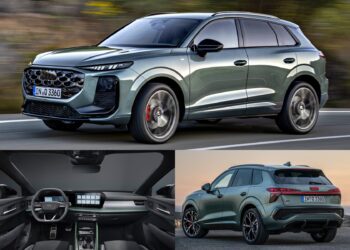The concept of self driving cars is tough to wrap your head around. Luckily, Audi is here to help.
Self-driving cars are becoming a reality quicker than ever, and when they eventually become mainstream, they’re undoubtedly going to change the world of transportation. However, the ins and outs of self-driving cars are still wrapped in a lot of mystery for many, and where there is mystery, there’s skepticism. Audi consulted with experts on the subject and conducted a study dubbed “SocAIty” with the goal of shedding light on the subject and dispelling myths that hold people back from embracing this new innovation.
MUST READ: Audi’s Q1 2022 Shows Increased Profit And Dramatically Increased EV Sales
The first myth that is addressed is that self-driving cars are going to look and feel the same way as the cars of today. This is not true, because the advent of self-driving will allow the interior design of future cars to focus on passenger comfort, meaning seats can face in different directions, and controls that would normally be used for manual driving can be retracted. The second myth alleges that autonomous cars will be able to drive anywhere when the software is made. This isn’t true, because the infrastructure in cities has to be developed and made more intelligent to accommodate self-driving technology.
One of the most important myths to us car enthusiasts is that self-driving cars are going to take away our own ability to drive, and SocAIty concludes that this is untrue because of the fact that it will always be a choice for the driver to manually drive their car, and hand control over to the self-driving technology when they don’t feel like driving. Another concern for many people is that self-driving cars can be hacked. While self-driving cars aren’t any more vulnerable to hacking than any other car, the implications of a self-driving car being hacked are more severe. With this in mind, manufacturers are doing extra work to maintain cybersecurity in self-driving cars to make sure they are safe in this regard.
Some believe that self-driving cars will require less parking space, and while this isn’t true, vehicle density has the potential to be reduced if vehicle sharing systems are created and promoted, especially since it’s shown that many personal cars are only used for 1 hour a day. Another myth is that technology is developing faster than the applicable legislation, and while this is true in some parts of the world, other countries and regions like Germany have already laid out a legal framework for autonomous driving, hopefully setting a precedent for the rest of the world.
Often, you will hear people say that self-driving creates an ethical consideration in which a self-driving system is asked to make a life-and-death decision. However, if you take a step back, you realize that the system only understands what its programmers have taught it, and therefore, in these situations, it rather relies on the ethics of its programmers and doesn’t create its own consideration of what to do. The final myth Audi addressed is that self-driving cars will remain a luxury for the elite only to enjoy, and as with any technology, this will be true in the short term, but as the cost of development is amortized and the technology becomes more common, it will become more accessible for everyone to be able to afford, repair, and insure.
Source: Audi






